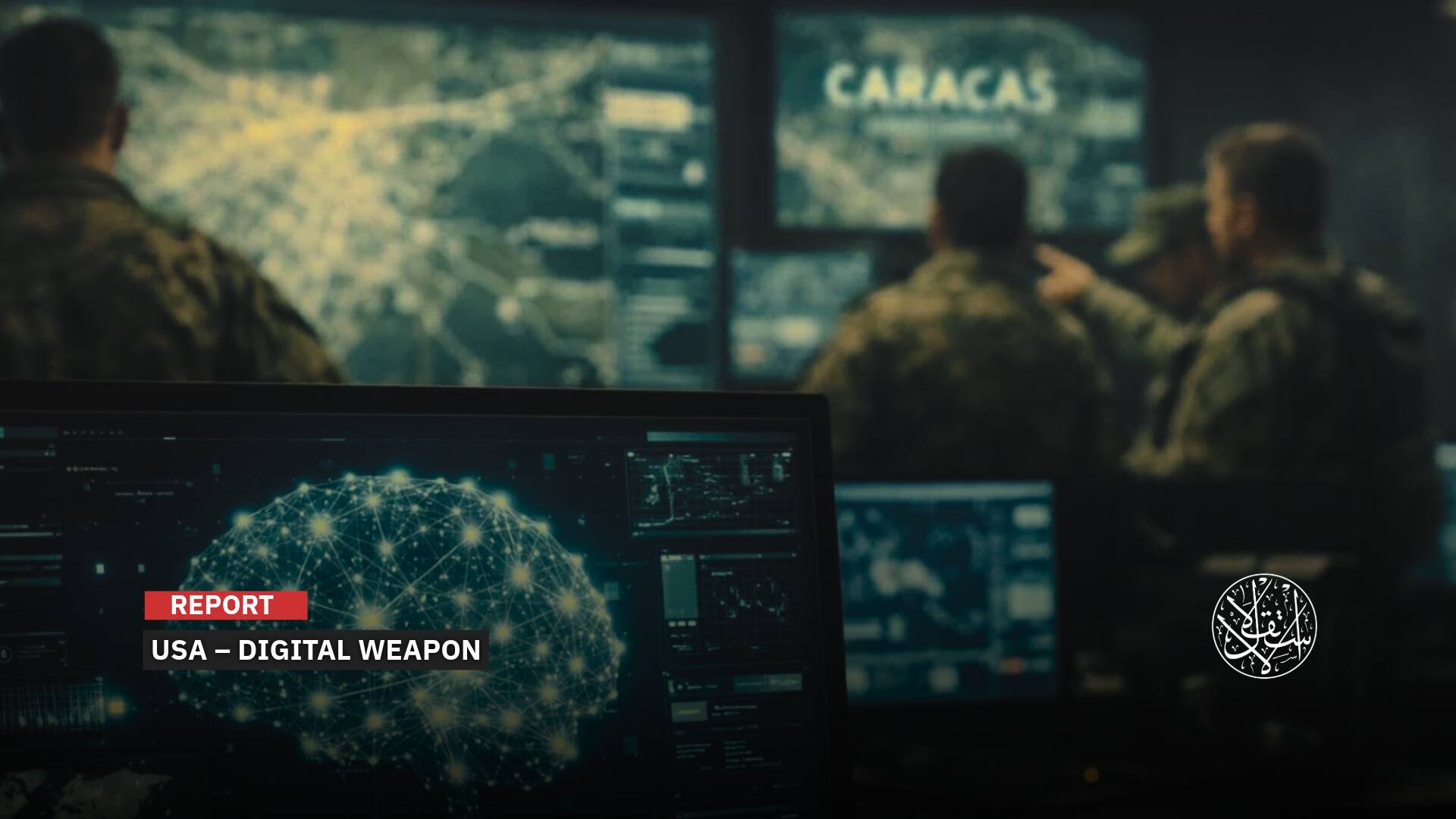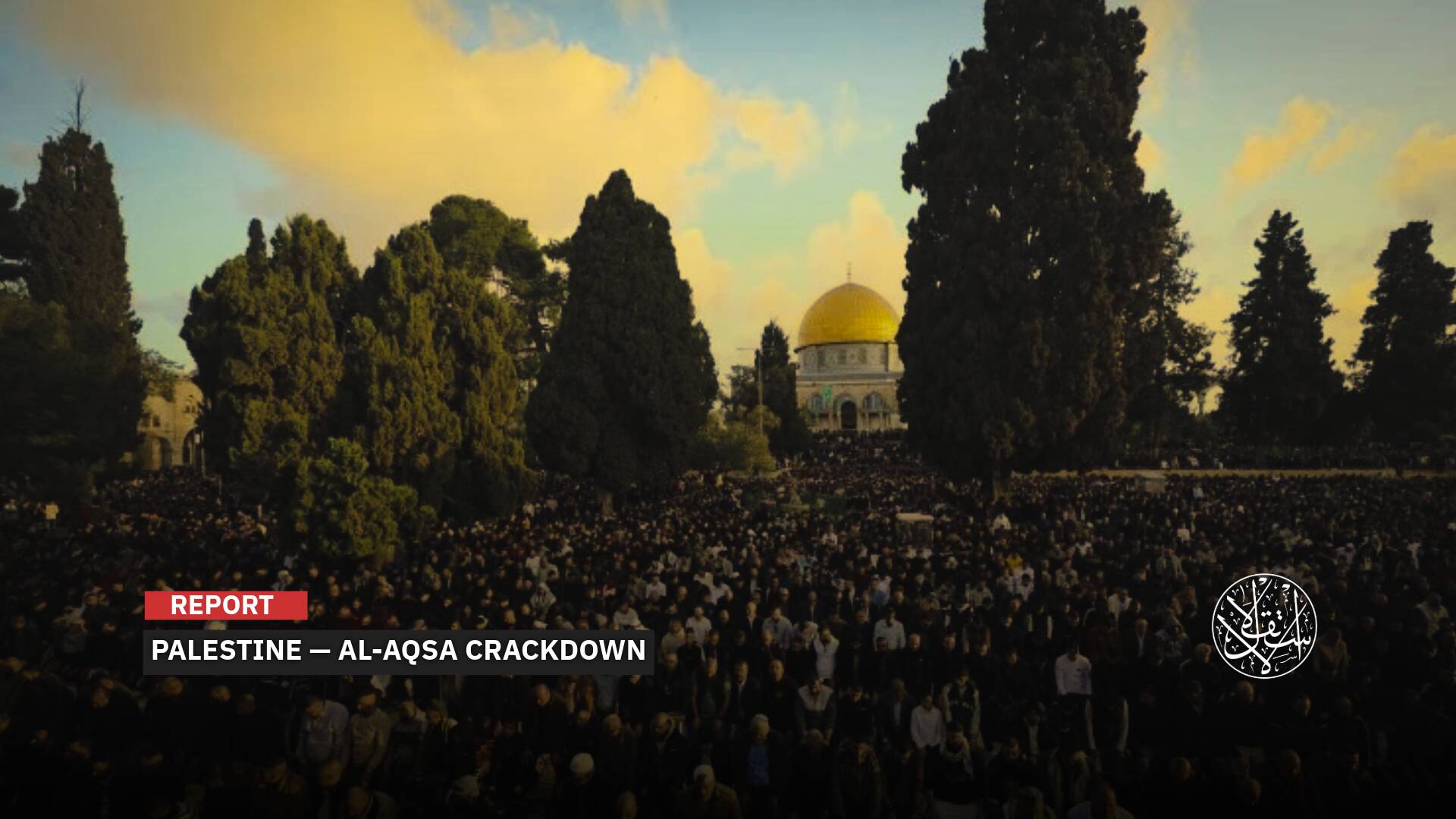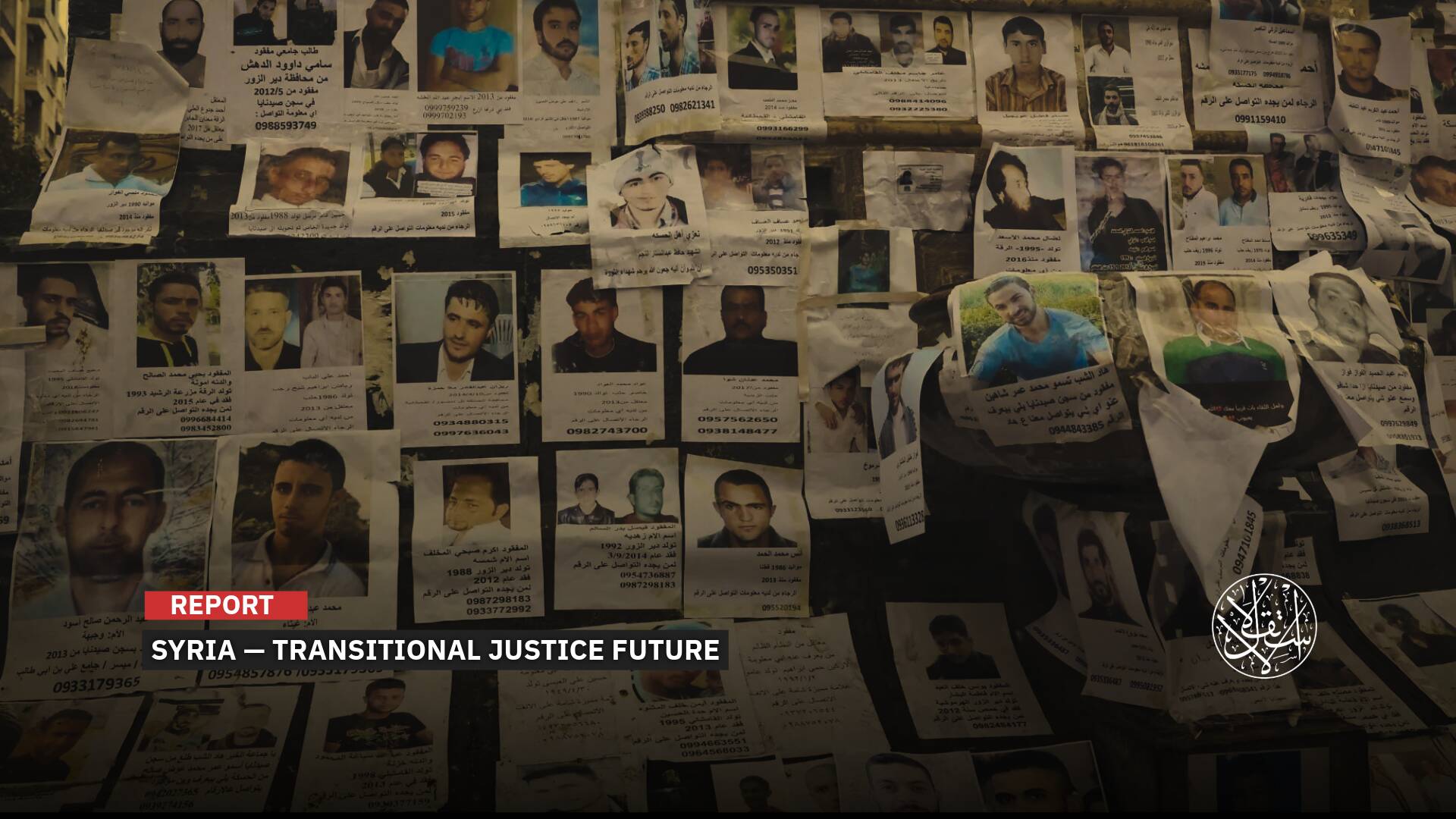Bishara Bahbah: The Palestinian-American Academic Who Opened Secret Channels Between Trump and Hamas

Bahbah backed Trump’s election bid but criticized his plans for Gaza.
As ceasefire talks in Gaza remain stalled for weeks, a new figure has emerged as an unofficial backchannel between President Donald Trump’s administration and Hamas.
Palestinian-American academic and businessman Bishara Bahbah has come into the spotlight for playing a key role in bridging the gap between the two sides after negotiations hit a dead end.

Alternative Channel
Bishara Bahbah’s role as an unofficial go-between for the Trump administration and Hamas began to surface in April 2025, just as ceasefire talks were stalled and “Israel” was preparing for a large-scale invasion of Gaza.
With negotiations at a standstill, Axios reported on May 13 that senior Hamas official Ghazi Hamad had reached out to Bahbah—a longtime Trump supporter—in a secret effort to initiate contact with U.S. Middle East envoy Steve Witkoff. That effort led to a breakthrough: the release of U.S.-Israeli prisoner Aidan Alexander from Gaza on May 12, following direct talks between Washington and Hamas.
But according to Yedioth Ahronoth on May 27, Bahbah’s role predated that. The paper said he had helped broker a ceasefire on January 19—one “Israel” later unilaterally ended two months later before resuming its assault and blocking all aid to Gaza.
Axios also revealed that Bahbah received nearly 20 messages from Hamas representatives in the two weeks following Alexander’s release. These messages reportedly aimed to pressure the Trump administration to push “Israel” into broader negotiations. Israeli Occupation officials were unaware of the backchannel and only learned of it through intelligence sources.
Since then, Bahbah’s involvement has grown. According to The Times of Israel, by late May, he was in Doha representing Witkoff, leading talks under his general direction. On May 28, Hamas said it was waiting for a final response to a broad ceasefire framework it had agreed upon with Witkoff, while Israeli media reported that Tel Aviv had rejected the same proposal.
The draft reportedly included the release of 10 Israeli prisoners and the return of bodies, in exchange for Palestinian detainees, Israeli withdrawal from Gaza, resumed aid delivery, and a professional committee to manage the territory post-ceasefire.
Israeli Channel 13 quoted sources dismissing the Hamas-approved proposal as unacceptable, suggesting the offer was not an official U.S. initiative but rather Bahbah’s draft.
Although Witkoff had initially committed the U.S. to serious negotiations with “Israel” through Bahbah, he later distanced himself after Tel Aviv’s rejection. On May 26, he told Walla that Hamas’s response had been “disappointing and completely unacceptable.”
Observers noted the disconnect: Hamas appeared to accept a proposal authored by Bahbah to end the war, while “Israel” had agreed to a different one that didn’t guarantee a full ceasefire.
On May 27, Yedioth Ahronoth reported that American officials denied backing the proposal Hamas relayed through Bahbah, while some Israeli sources claimed he had been used as a “scapegoat” by Washington to pressure “Israel” into ending the war.
A day later, Witkoff appeared at the White House beside Trump, announcing a new proposal was in the works and likely to be delivered that same day—a development confirmed by multiple reports just hours later.

Prominent Academic
Bishara Bahbah is a Palestinian-American academic and activist born in Occupied East Jerusalem in 1958 to parents who were displaced during the 1948 Nakba.
He studied in Jerusalem until 1976, then, after a brief professional period, he settled in the United States in the 1970s. During this time, his family lived in Jordan for two years.
Bahbah became involved in American academic and political work. He is a prolific writer, regularly contributing to 15 newspapers and magazines, publishing widely on Middle Eastern political and social issues.
He earned his bachelor’s degree from Brigham Young University, then completed his master’s and PhD in finance at Harvard University in 1982 and 1983.
He stayed at Harvard to teach and served as assistant director of its Middle East Institute before pursuing a career blending finance, politics, and pro-Palestinian activism.
Between 1992 and 1993, Bahbah was part of the Palestinian delegation to the Arab-Israeli multilateral “peace talks” and has been a strong advocate for a two-state solution.
In 1983, he returned to Occupied Jerusalem to become editor-in-chief of the Palestinian newspaper al-Fajr and was active in numerous humanitarian organizations.
He also participated in multilateral talks on arms control and regional security in the Middle East. Until recently, he served as vice president of the American Palestinian Council.
Bahbah was managing director of the United Palestinian Appeal charity and founded the Palestine Center, an independent research institute, both based in Washington, D.C.
He also worked for a Morgan Stanley subsidiary, a multinational financial services firm, and authored the book Wealth Management in Any Market.
Originally a Democrat, Bahbah withdrew his support for the party in June 2024, criticizing President Joe Biden’s policies regarding the Israeli war on Gaza.
Before Biden even left the race, Bahbah told Turkiye’s TRT World that they were fed up with Joe Biden and his involvement in the genocide of the Palestinian people in Gaza.
In response, he founded the Arab Americans for Trump group, which played a major role in mobilizing Arab-American voters in Michigan to support the current U.S. president, making him one of Trump’s close associates.
He worked closely with Richard Grenell, Trump’s special envoy, and Lebanese-American businessman Massad Boulos, Trump’s son-in-law and a key coordinator with Arab-American communities.
However, after Trump announced plans in February 2025 to take over Gaza, deport its residents to neighboring countries, and turn it into an international tourist destination dubbed the “Middle East Riviera,” Bahbah shifted his stance.
He renamed his organization to Arab Americans for Peace.
According to Yedioth Ahronoth, this change marked his quiet entry into backchannel diplomacy, although he still supports Trump despite his criticism of the Gaza plan.
Bahbah also played a behind-the-scenes role in crafting a congratulatory message from Palestinian President Mahmoud Abbas to Trump after his re-election.
The Telegraph reported on May 21 that Bahbah persuaded Abbas to send the message and personally delivered it to Trump, paving the way for the first direct phone call between the two leaders.

Biography and Stances
Although he built his life in the United States, Bishara Bahbah’s connection to Palestine has never wavered, as he stated in a 2018 interview with the UAE’s Arab News.
He said he registered his U.S.-born children with the United Nations Relief and Works Agency for Palestine Refugees (UNRWA), despite their American birth.
“Palestine will remain my homeland wherever I am. When I die, I want them to say I was Palestinian. This is our eternal right.”
Bahbah also keeps his UNRWA card, through which his family received aid when they were displaced to the Zarqa refugee camp in Jordan and later in the Old City of Occupied Jerusalem.
“I have on my wall my Harvard PhD, which clearly demonstrates that even if Israel takes our lands, they can never take away our brainpower and our unshakable will and determination to succeed. They would have to chop off our heads from our bodies first for them to ultimately succeed,” he said.
His father owned a barbershop in the King David Hotel in Occupied Jerusalem before Zionists bombed it. A woman warned his father, “Bahbah, jump! A bomb is about to explode.”
“He jumped from the second floor as the bomb was exploding. The shock caused my father’s hair to turn grey within a few months.”
“Shortly after, my family fled to Jordan and ended up in the Zarqa refugee camp, where they took shelter for two years. After that, the family returned to the Old City.”
Bahbah holds only his U.S. passport, as “Israel” revoked his blue ID in 2009.
“In 2009, Israel took away my Jerusalem residency, represented by the blue ID card that they issued. They claimed that since I am now a US citizen, my center of life is no longer Jerusalem and simply took away my right to reside in Jerusalem.”
“Now, when I go back to visit family, I go in using the U.S. passport and I am given a 90-day visa like any other American citizen. Of course, I am fortunate that I have a U.S. passport. At least I get to visit my own land,” he said.
In a February 2021 interview with the U.S. Wilson Center for Policy and Diplomacy, Bahbah shared his views on past and future Israeli-Palestinian negotiations.
“With regarding to the format of any future negotiations, I think that they should be more interactive,” Bahbah said at the time.
“You don't make policies by reading speeches. You make policies by sitting together and outlining each other's concerns regarding the issues that they are negotiating over. The parties should be clear about what each side hopes to achieve because of those negotiations. The more face-to-face negotiations are, the more they will tend to be fruitful.”
Regarding Trump’s Gaza plans, Bahbah stated on X in February that the president’s ideas are completely unacceptable. Gaza belongs to the Palestinians; it is not property to be bought or sold.
“Gaza is for the Palestinians. It’s for nobody else. And for somebody to even insinuate that Gazans have to be relocated to make it a beautiful piece of territory for someone else is just ludicrous,” he reaffirmed in April.
Sources
- An Arab-American Trump advocate on what comes next
- ‘Jerusalem will always be home, wherever I am’: Dr. Bishara A. Bahbah
- 'When I die, I want them to say I was Palestinian': This is Bishara Bahabah, the American mediator between Hamas and the US
- Trump's Arab ally worked discreetly to secure release of US-Israeli captive Edan Alexander — sources
- Who Is Bishara Bahbah? Trump's Palestinian-American Backchannel With Hamas
- U.S. believes breakthrough is close on Gaza ceasefire, hostage deal
- Scoop: Hamas approached pro-Trump activist for secret talks that freed Edan Alexander
- Dr. Bishara Bahbah
- https://www.aa.com.tr/en/middle-east/hamas-used-pro-trump-figure-in-backchannel-talks-for-release-of-israeli-american-captive-report/3566344
- https://www.ndtv.com/world-news/who-is-bishara-bahbah-the-palestinian-academic-connecting-donald-trump-to-hamas-8526512










